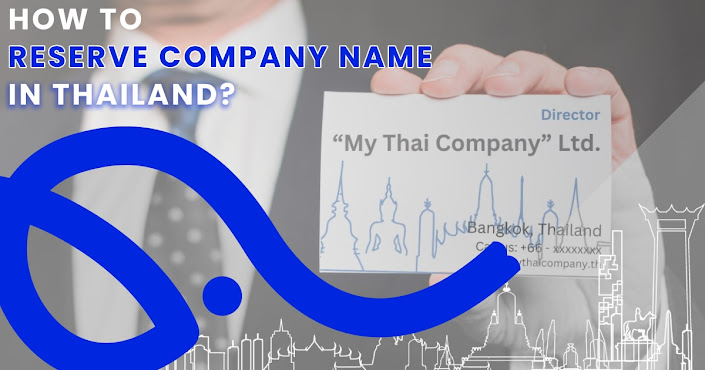To start with, you must know that the Memorandum of Association (MOA) for Company Registration in Thailand differs from the Articles of Association (AOA) greatly. We will surely explain the difference in this article, before which you must know about MOA. This will help you understand the difference better and proceed with the application process for Company Registration in Thailand properly.
What is the Memorandum of Association (MOA) for Company Registration in Thailand?
A Memorandum of Association (MOA) is a legal document that establishes a company’s fundamental principles and objectives at incorporation. It is a requirement by Thai law that all limited companies must have an MOA.
The MOA typically includes the following information:
- Name of the Company
- Business Objectives of the Company
- Company’s registered address
- Company’s authorized capital
- The number of shares that the company has the right to issue
- The types of shares that the company has the authorization to issue
- The rights and privileges of each type of share
- The names and addresses of the company’s directors and shareholders
The MOA is a very important document for company registration in Thailand. Correct and accurate drafting of the MOA is important to avoid any problems with the Thai authorities. If you need help drafting an MOA, you should consult with a reliable corporate law firm in Thailand.
How Memorandum of Association (MOA) is different from Articles of Association (AOA) in Thailand?
MOA holds the company’s essential information and serves as the company’s constitution. Whereas, the content of an AOA constitutes all internal management rules and regulations.
- The MOA describes the company’s powers and purposes, while, AOA defines its rules. This is the primary distinction between the two documents.
- Should there be any discrepancy regarding a provision between the Memorandum and the Articles of Incorporation, the Memorandum of Association will take precedence.
- MOA outlines the company’s goals and authority. On the other hand, AOA states the company’s rules and regulations.
- While changes to the AOA can only be made by a Special Resolution (SR) at the Annual General Meeting, changes to the MOA require the consent of the central government beforehand and must be passed by a special resolution at the meeting (AGM).
- The MOA must be filed with the Registrar of Companies at the time of incorporation. While voluntary registration is an option, the company may not comply with these standards for AOA.
Overall, the MOA defines the external relations and objectives of the company, while the AOA focuses on the internal management and operation of the company. Both documents are essential for registering and governing a company in Thailand, and they must comply with the legal requirements of Thai company law. It’s important to consult with legal professionals or authorities in Thailand to ensure compliance with the specific regulations in the country.
Requirements for Memorandum of Association in Thailand
In general, companies in Thailand are primarily of two types – a Private Limited Company and a Public Limited Company. Along with the difference in the names, there is a difference in the process of their formation as well as the involved MOA. For your convenience, we have clearly defined the contents of MOA in both cases below:
A Private Limited Company’s MOA must hold the following details:
- Name of the company
- Location of the company’s registered office
- Objectives of the company
- Division of the Registered capital must be equal for each share with the same value
- Name, address, age, occupation, and number of shares of the shareholders
- Name, address, and age of two witnesses
The MOA for a Public Limited Company must include the following:
- Company name
- The purpose of the company is to offer shares for sale to the public
- The objective of the company
- Registered capital, including the type, number, and value of shares
- The province where the company will be located
- Names, dates of birth, nationalities, and addresses of the promoters and the numbers of shares for which each of them has subscribed
You have to submit the application for filing the MOA with a stamp duty of THB 200 to the Department of Business Development. Please note that this stamp duty is subject to change as per the announcement of the DBD or Revenue Department of Thailand.
Furthermore, to submit your MOA to DBD, you have to enclose the same with the Boj. 2 form which you can download from the link below:
For more information about Memorandums of Association in Thailand, why not talk to one of our experts now? Talk to an expert!
Additionally, we have experts on board who can help with accounting, audit, and tax services in Thailand. Alternatively, you can simply email us your requirements at officer@konradlegal.com and our team will get back to you within one Thai working day.







